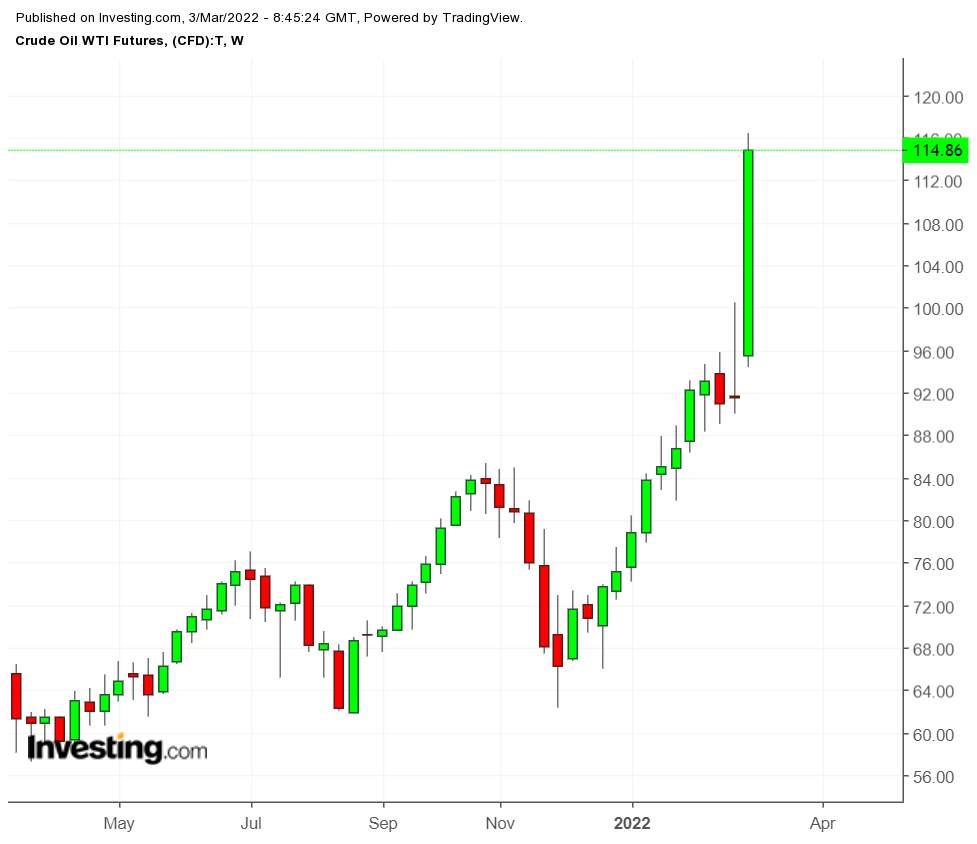Russia's incursion into Ukraine, along with the triple-digit oil prices for both Brent and WTI the invasion helped trigger, have altered the energy landscape in just two weeks.

Given the still shifting paradigm for the commodity itself—both from the price and production perspective—and the global economy which depends on it, there are three important considerations to keep in focus in order to stay on top of how market participants may react and what the possible consequences could be.
1. Will OPEC+ rebuff the pressure to cut ties with Russia?
The OPEC partnership with Russia and other countries has proven to be fairly effective. Indeed, it's lasted longer than some experts expected.
These producer countries seem to work well together, for the most part. Yet in this political and social climate, everyone from publishing businesses to governments to energy companies to international sports federations are cutting ties with Russia.
The question is whether OPEC will feel compelled to distance itself from Russia. It is unlikely that OPEC will give in to external global pressure, because, typically, OPEC does not let politics or sentiment get in the way of its goals. Right now, Russia is consistently one the world’s top three producers of oil. It is the essential component of OPEC+. Saudi Arabia and Russia combined are the most powerful supply-side force in the market today.
If OPEC does feel compelled to separate itself from Russia, OPEC’s market influence would be severely diminished. Moreover, the cartel may never entice Russia to rejoin if it cuts ties today.
2. Will high oil prices encourage greater domestic production in the U.S.?
ExxonMobil (NYSE:XOM) and Chevron (NYSE:CVX) both indicated this week that they are not planning to grow oil production significantly over the next five years. These announcements come even though prices are in the triple digits. They may change their plans, but this is what they are telling investors today.
These corporate announcements, which seem counterintuitive to the rising oil price, nonetheless serve to keep the stock price high and push it higher. For example, Barron’s pointed out on Mar. 2 that after ExxonMobil’s announcement, "the stock is rising."
However, if elevated oil prices remain, the enticement of more revenue may be too much to ignore, especially for smaller producers. They have been held back from increasing output because of uncertainty in regulation and permitting from the federal government and because of a lack of financing. Soaring oil prices will surely convince some producers that it's worth the uncertainty of dealing with changing government policies.
In addition, lofty oil prices will be too tempting for financiers to ignore. Some investors and lenders will step in, providing additional capital that they'll make available for the industry. What we cannot predict is how much more production will come online and how quickly that production might materialize.
3. Will more interest in alternative energies and discussion of "peak demand" return?
Oil prices were up for much of the first decade and a half of this century. With those heightened prices came renewed investment in alternative energies and electric vehicles. It also led to discussions and predictions of an idea called "peak demand."
However, for the last seven years, oil prices have been significantly lower, and there has been less incentive for consumers to worry about the price of gasoline or the price of utilities.
Now that oil and gas prices are elevated again, we may very well see a return to consumer interest in alternative energies. High oil and gas prices are used as strong selling points to convince consumers to purchase electric vehicles and install solar panels on their homes. Governments around the globe—particularly in North America and Europe—are already regulating and legislating behavior to support alternative energy industries. But triple-digit oil prices will further incentivize consumers to pursue these options as a way to lower their energy costs.
Before the COVID pandemic, global demand for oil was over 100 million bpd. Though it's still recovering, it is around 100 million bpd now. It is not yet clear how high oil prices have to go—and remain at those levels—to cut into demand.
Some analysts believe that oil prices will need to reach the $150 or $170 per barrel mark in order to see demand destruction. However, if the prices stay high, look for renewed talk of peak demand which, in turn, tends to be a downward force on prices.
